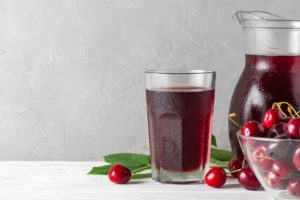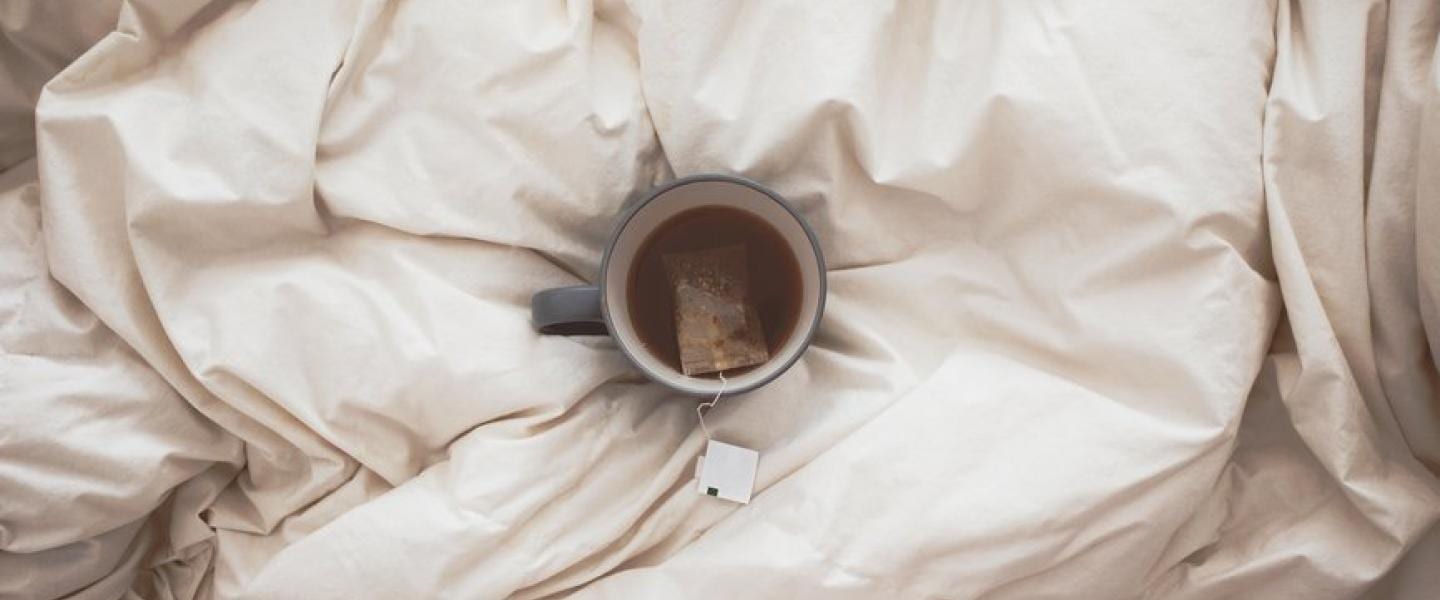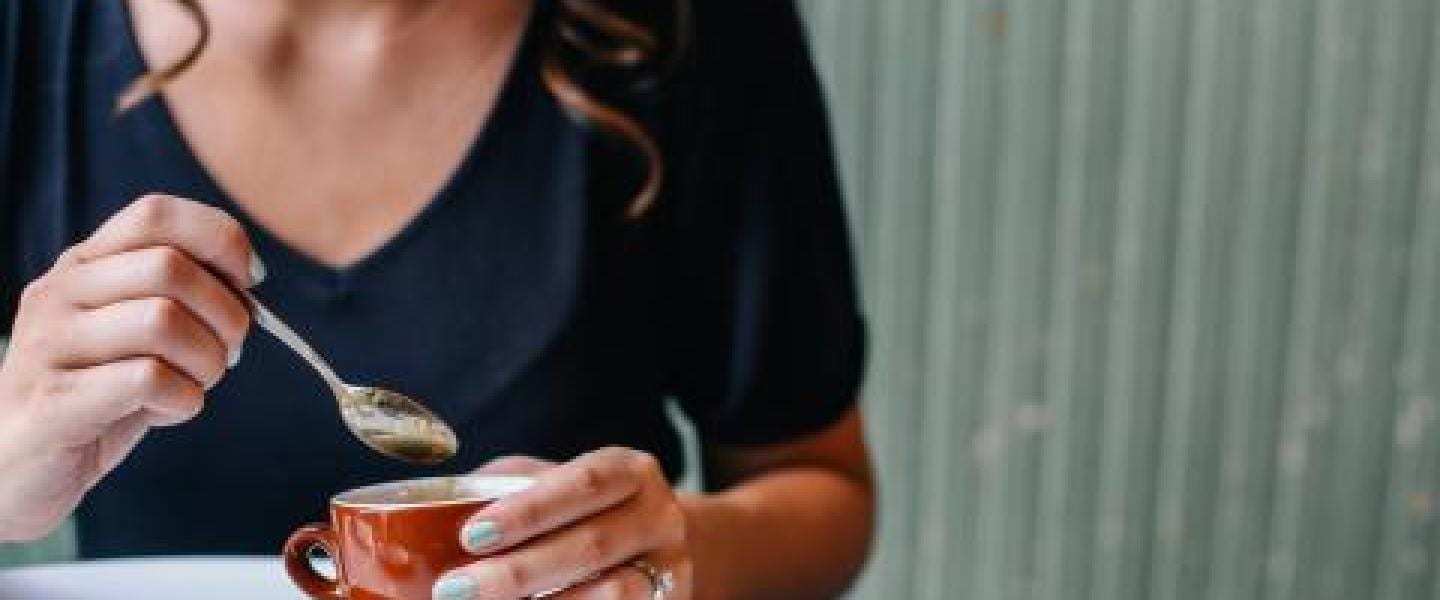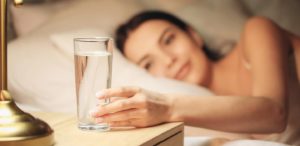When you buy through our links, we may earn a commission. Products or services may be offered by an affiliated entity. Learn more.
Is Eating Before Bed Bad?
- Eating before bed may stabilize your blood sugar levels and satisfy cravings, helping you fall asleep faster.
- Risks of eating before bed may outweigh benefits and cause reflux, heartburn, weight gain, and worse sleep.
- Experts recommended eating up to two hours before bedtime to avoid negative effects.
In the past, the idea that eating before bed is bad was a widespread belief. Many thought that late-night meals or snacks could lead to weight gain and related diseases. But newer evidence is showing a more complex picture of nighttime eating. Recent studies suggest that eating a small portion of nutrient-dense foods at night can actually have positive effects on the body.
Eating and sleeping are two essential activities for health and wellbeing. Food gives people the energy they need for daily life, while sleep helps their bodies rest and recover. Knowing how the body handles food at night can help people make informed choices about bedtime snacking.
Benefits of Eating Before Bed
Food and sleep have a complex relationship. Our sleep quality can affect what we choose to eat. On the other hand, what we eat, and when we eat, can affect our sleep. Eating at night, therefore, can have varied effects on how fast we fall asleep, the quality of our sleep, and how we feel in the morning.
Although experts do not recommend large meals before bedtime, a light snack can have several benefits. A snack before going to sleep may be necessary to prevent low blood sugar. Certain snacks before bedtime can provide sleep benefits such as falling asleep faster or staying asleep longer . A bedtime snack can also curb a person’s hunger and help them feel satiated until morning.
Looking to improve your sleep? Try upgrading your mattress.
Stabilizing Blood Sugar Levels
People with diabetes have to ensure their blood sugar levels are appropriately balanced because the disease excessively raises blood sugar in the body. Diabetes occurs when the body either does not process sugar (type 1 diabetes) or ineffectively processes sugar (type 2 diabetes) to create energy for the body.
Certain medications that manage diabetes, can lower blood sugar levels too much. Low blood sugar at night can give people nightmares or make them sweat excessively, disrupting their sleep. They may also wake up feeling irritable, confused, or tired. To avoid these problems, eating a carbohydrate-based snack can help raise blood sugar to the correct level.
In other cases, health care providers may suggest that people with type 2 diabetes have a snack at night to avoid waking up with blood sugar levels that are too high . The snack could help the body maintain blood sugar balance while asleep and avoid a rush of sugar-producing hormones upon waking.
Falling Asleep Faster
Some foods contain elements that may help people fall asleep faster. Experts hypothesize that consuming foods containing high amounts of tryptophan, serotonin, or melatonin can shorten the time it takes to fall asleep and improve overall sleep quality.
Tryptophan, serotonin, and melatonin each play a role in the body related to sleep. Every diet requires foods with the amino acid tryptophan, because the body cannot produce tryptophan on its own. The body then turns tryptophan into serotonin and melatonin. Melatonin signals to the body that it is time to sleep, while serotonin regulates sleep, hunger, and emotions.
Satisfying Hunger
Hunger is a natural need for food. Common signals of hunger are the feeling of an empty stomach or hunger pangs. Lightheadedness and fatigue can also be signs of hunger. Experts caution against mistaking other feelings for hunger, such as boredom, tiredness, or anxiety. These feelings are not the same as hunger and may be addressed in ways other than eating.
For people who get hungry in the evening after dinner, a light snack may be appropriate. Snacks that offer a lot of nutrients but are also low in calories can appease hunger cravings without disrupting or delaying sleep .
Risks of Eating Before Bed
Health experts advise against eating a full or heavy meal near bedtime. Consuming a large meal so close to sleeping can affect digestion and sleep quality. Over time, consuming most of a person’s daily food intake late in the day can also lead to obesity.
Gastroesophageal Reflux, Acid Reflux, and Heartburn
Eating too close to bedtime is related to gastroesophageal reflux disease (GERD), also called acid reflux. GERD occurs when the contents of the stomach return back up the esophagus. The esophagus is the tube responsible for delivering food from the mouth to the stomach. When a person lies down right after eating, the contents of the stomach can press against the lower esophageal sphincter, causing irritation and acid reflux.
GERD can cause discomfort or pain, such as heartburn. Heartburn is a burning pain in the chest that usually comes up from the stomach. Other common symptoms of GERD include nausea, a sensation of food trapped in the chest, and the taste of stomach acid in the mouth.
To reduce the risk of GERD, heartburn, and related symptoms, experts recommend against lying down on the back immediately after eating. Additionally, experts advise people to avoid eating a full meal two to four hours before bedtime.
Poor Quality Sleep
Eating too much close to bedtime can affect sleep quality. Research shows that eating high-calorie meals with large amounts of fat or carbohydrates less than an hour before bedtime can extend the time it takes to fall asleep. By contrast, eating meals high in carbohydrates at least four hours before bedtime can decrease the time spent awake in bed before sleeping.
Eating right before bed can also make a person wake up in the middle of the night . One study found that participants who ate or drank less than an hour before going to bed were much more likely to wake up after falling asleep than people who consumed something two or more hours before bedtime.
Obesity
The relationship between eating near bedtime and obesity is complicated. While research suggests that eating later in the evening can increase the chances of obesity, this may depend significantly on the types of food and portion sizes.
An adult should consume a target amount of calories each day, based on their age, activity level, and other individual factors. If a nighttime meal or snack puts a person’s calorie intake over the target amount, they may be at risk for weight gain and obesity. But eating a small nighttime snack that is rich in nutrients can actually be beneficial to a person’s health.
Importantly, the risk of obesity is influenced by factors beyond food consumption. These include other health conditions, stress, medications, exercise habits, and genetics.
How Long Before Bed Should You Stop Eating?
While estimates vary, most experts recommend eating a meal two to four hours before bedtime. People who eat meals well ahead of bedtime have enough time to properly digest their food. Taking time between eating and lying down also reduces the risk of GER symptoms and poor sleep.
Research on the best timing for an evening snack is limited. For people managing blood sugar, experts suggest consuming a snack near bedtime. The right timing of a snack may vary among individuals and depend on the food type.
What to Eat Before Bed
Although a full meal is not recommended near bedtime, a light snack may curb hunger in the evening. Researchers have found that some foods may help people sleep.
- Tart cherry juice: Drinking tart cherry juice in the morning and an hour or two before bedtime may improve sleep length and quality. These effects could be tied to the amount of melatonin, a sleep-inducing hormone, in cherry juice.
- Kiwi: A small study found that consuming two kiwifruits before bedtime reduced the time it took for participants to fall asleep and increased overall sleep time, thereby improving sleep quality. These effects may be due to the fruit’s natural antioxidants or to its levels of serotonin, which plays a role in deep sleep.
- Walnuts, almonds, and other nuts: Both walnuts and almonds contain high amounts of melatonin, while pistachios and cashews contain tryptophan. Experts suggest that food containing these substances can improve sleep.
- Milk and powdered milk: Milk contains both tryptophan and melatonin. A few studies have shown that milk or powdered milk consumption before bedtime may improve sleep quality and insomnia symptoms.
People with diabetes who want to prevent low blood sugar during sleep may also benefit from a nighttime snack. Carbohydrates help raise blood sugar quickly. Nighttime carbohydrate snacks should be easily digestible foods such as apples, bananas, or small cookies. However, the appropriate snack types and amounts vary from person to person, so people with diabetes should consult with their health care providers to make informed decisions.
What to Avoid Before Bed
Suggested foods to avoid near bedtime include:
- Spicy foods
- Foods high in fat, such as fried foods, full-fat dairy products, and fatty meats
- Acidic foods, such as tomatoes and citrus fruits
- Caffeine-containing food and drink, including chocolate, coffee, and tea
- Alcohol
Healthy Sleep Tips
In addition to avoiding large meals near bedtime, take further steps to improve your sleep hygiene.
- Develop a bedtime routine: In the hour before going to sleep, relax with a quiet activity such as reading or taking a bath. Avoid computer, phone, and TV screens before bedtime, since the blue light in these devices can make it difficult to fall asleep or stay asleep.
- Create a comfortable sleep environment: An ideal sleep environment is quiet, dark, and cool. Most sleepers find comfort in a room between 65º to 68º F.
- Use the bed for sleep and sex: Avoid other activities in bed such as working or eating. Additionally, if you are unable to fall asleep after about twenty minutes, get out of bed and read or do another quiet activity until you are tired.
- Exercise regularly: Among the many benefits of regular exercise is an easier time falling asleep and staying asleep. Experts recommend that most adults get a minimum of 150 minutes of moderate-level exercise such as walking or biking each week. However, avoid exercising two to three hours before bedtime.
- Nap strategically: Afternoon naps after 3 p.m. can make falling asleep at night difficult. If rest during the day is necessary, try to limit a nap to only twenty minutes earlier in the day.

Still have questions? Ask our community!
Join our Sleep Care Community — a trusted hub of sleep health professionals, product specialists, and people just like you. Whether you need expert sleep advice for your insomnia or you’re searching for the perfect mattress, we’ve got you covered. Get personalized guidance from the experts who know sleep best.
References
9 Sources
-
Lin, H. H., Tsai, P. S., Fang, S. C., & Liu, J. F. (2011). Effect of kiwifruit consumption on sleep quality in adults with sleep problems. Asia Pacific Journal Of Clinical Nutrition, 20(2), 169–174.
https://pubmed.ncbi.nlm.nih.gov/21669584/ -
Howatson, G., Bell, P. G., Tallent, J., Middleton, B., McHugh, M. P., & Ellis, J. (2012). Effect of tart cherry juice (Prunus cerasus) on melatonin levels and enhanced sleep quality. European Journal of Nutrition, 51(8), 909–916.
https://pubmed.ncbi.nlm.nih.gov/22038497/ -
Roach, L. A., Woolfe, W., Bastian, B., Neale, E., & Francois, M. E. (2022). Systematic literature review: Should a bedtime snack be used to treat hyperglycemia in type 2 diabetes? The American Journal of Clinical Nutrition, 116(5), 1251–1264.
https://pubmed.ncbi.nlm.nih.gov/36083989/ -
Zuraikat, F. M., Wood, R. A., Barragán, R., & St-Onge, M. P. (2021). Sleep and diet: Mounting evidence of a cyclical relationship. Annual Review of Nutrition, 41, 309–332.
https://pubmed.ncbi.nlm.nih.gov/34348025/ -
Kinsey, A. W., & Ormsbee, M. J. (2015). The health impact of nighttime eating: old and new perspectives. Nutrients, 7(4), 2648–2662.
https://pubmed.ncbi.nlm.nih.gov/25859885/ -
Crispim, C. A., Zimberg, I. Z., dos Reis, B. G., Diniz, R. M., Tufik, S., & de Mello, M. T. (2011). Relationship between food intake and sleep pattern in healthy individuals. Journal of Clinical Sleep Medicine, 7(6):659-64.
https://pubmed.ncbi.nlm.nih.gov/22171206/ -
Iao, S. I., Jansen, E., Shedden, K., O’Brien, L. M., Chervin, R. D., Knutson, K. L., & Dunietz, G. L. (2021). Associations between bedtime eating or drinking, sleep duration and wake after sleep onset: Findings from the American time use survey. The British Journal of Nutrition, 127(12), 1–10.
https://pubmed.ncbi.nlm.nih.gov/34511160/ -
Losso, J. N., Finley, J. W., Karki, N., Liu, A. G., Prudente, A., Tipton, R., Yu, Y., & Greenway, F. L. (2018). Pilot study of the tart cherry juice for the treatment of insomnia and investigation of mechanisms. American Journal Of Therapeutics, 25(2), e194–e201.
https://pubmed.ncbi.nlm.nih.gov/28901958/ -
Fakhr-Movahedi, A., Mirmohammadkhani, M., & Ramezani, H. (2018). Effect of milk-honey mixture on the sleep quality of coronary patients: A clinical trial study. Clinical Nutrition ESPEN, 28, 132–135.
https://pubmed.ncbi.nlm.nih.gov/30390870/













